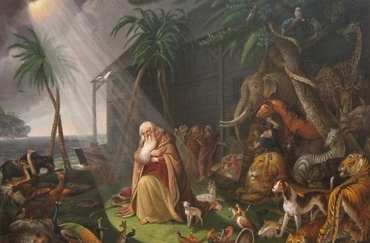Beast

In Genesis 1:24, beasts signify the things of man's will or loves. (Arcana Coelestia 44, 46)
In Genesis 9:10, beasts signify all that was living in the man of the Ancient Church, and also what belonged to his new will; likewise the lower things of his understanding and the will therefrom. (Arcana Coelestia 1026-1029)
In Psalm 104:20, beasts signify affections longing to be instructed, or spiritually nourished. (Apocalypse Explained 650[10])
In Luke 10:35, since the beast was a donkey, this signifies to instruct another according to his capability. (Apocalypse Explained 1154)
The beast of the south (Isaiah 30:6) signifies people who are principled in the knowledges of good and of truth, but do not apply them to life and instead to science.
Every beast and creeping thing (Genesis 8:19) signifies the goodnesses of the internal and external man.
"Beasts" represent the affection for doing good things, a true desire to do them from the heart. In the negative sense, "beasts" stand for the lust to do evil.
The beast ascending out of the sea (Revelation 13:1) signifies reasonings from the natural man confirming the separation of faith from life.
(References: Apocalypse Explained 13, 773; Revelation 13:11)
Arcana Coelestia #5196
5196. 'And behold, he was standing next to the river' means from boundary to boundary. This is clear from the meaning of 'the river' - which in this case is the River of Egypt, or the Nile - as a boundary. The reason 'the river' means a boundary is that the major rivers, the Euphrates, the Jordan, and the Nile, and besides these the sea, were the final boundaries of the land of Canaan. Because the land of Canaan itself represented the Lord's kingdom, and all locations in that land therefore represented various features of that kingdom, the rivers accordingly represented its final limits or boundaries, see 1866, 4116, 4240. The Nile or River of Egypt represented sensory impressions subject to the understanding part of the mind and so represented factual knowledge gained from those impressions; for that factual knowledge is the final limit of spiritual things that belong to the Lord's kingdom. The reason why from boundary to boundary is meant is that, referring to Pharaoh, it says 'he was standing next to the river'; and 'Pharaoh' represents the natural in general, 5160. Viewing something from within through to its final outward limit is represented by 'standing next to the river', as happens in the spiritual world. And because in the present context such a view extends from boundary to boundary, that is what is therefore meant in the internal sense.






